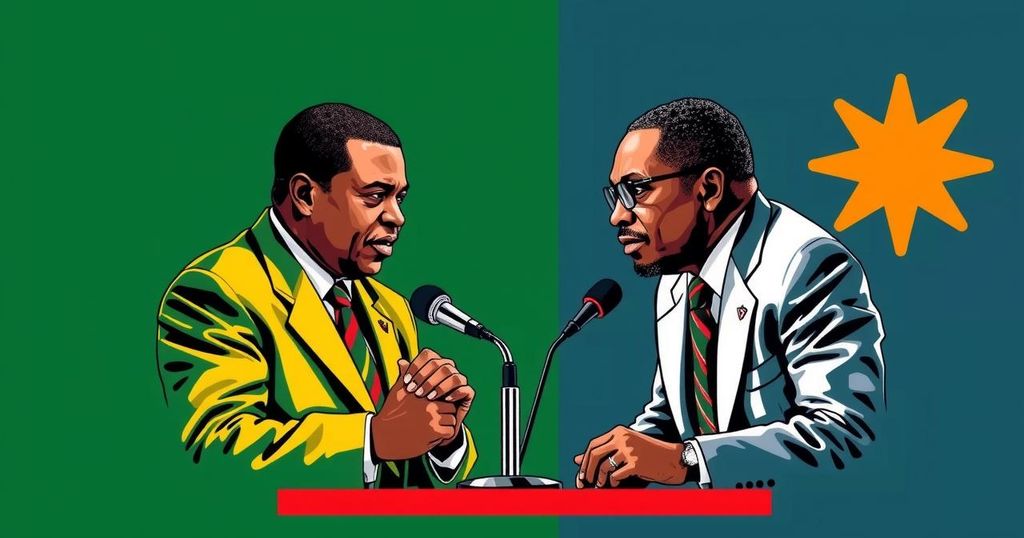Namibia’s upcoming election may see Vice-President Netumbo Nandi-Ndaitwah potentially becoming the country’s first female president. However, she faces significant challenges from Panduleni Itula of the IPC, in an election marked by disillusionment with Swapo and a desire for change among younger voters. The outcome will significantly impact Namibia’s future governance and socio-economic landscape.
Namibia is poised on the brink of a significant historical decision as it prepares to vote this week, potentially electing its first female leader, Vice-President Netumbo Nandi-Ndaitwah of the ruling Swapo party. At 72 years old, Ms. Nandi-Ndaitwah, who has been instrumental in the country’s liberation efforts, could mark a transformative moment in Namibia’s political landscape. However, her path to the presidency is complicated by rising discontent with the long-reigning Swapo party and growing competition from notable opponents like Panduleni Itula of the Independent Patriots for Change (IPC).
Entering this election, Swapo grapples with diminished support, as evidenced by a notable decline in its votes during the last elections, alongside persistent issues such as unemployment and economic inequality. The party has led Namibia since its independence from South African rule in 1990, but the socio-economic challenges it faces may impede Nandi-Ndaitwah’s aspiration to lead. At the same time, her main rival, Itula, who has previously held a significant position within Swapo before being expelled, has energized the political arena with his appeal to the youth and his outsider status.
With 50% of voters under 35 years of age and yearning for change, Nandi-Ndaitwah must navigate the traditional male-dominated political framework while asserting her experience and collaborative leadership style against Itula’s dynamic persona. The election outcome remains uncertain, with strong indicators that it may lead to an unprecedented second-round runoff if neither candidate secures over 50% of the votes. Ultimately, the victor will be determined by their ability to resonate with the electorate on issues of corruption, youth unemployment, and economic rejuvenation without sacrificing the nation’s resources.
The upcoming elections in Namibia are historically significant, as they could lead to the election of the country’s first female president. Netumbo Nandi-Ndaitwah, who has held various governmental roles over 25 years, offers an experienced option for continuity in a country where the ruling party, Swapo, has faced declining support amidst socio-economic challenges. Her opponent, Panduleni Itula, represents a fresh perspective and appeals to younger voters seeking substantial change. The election outcome may also reflect broader trends in southern Africa, where long-standing liberation parties, such as South Africa’s ANC and Botswana’s BDP, are experiencing shifts in political power.
The electoral landscape in Namibia is marked by a critical generational shift, with Vice-President Netumbo Nandi-Ndaitwah potentially becoming the first female president amid rising youth-driven demands for transformation. Her substantial background in the liberation struggle contrasts with Panduleni Itula’s fresh approach, compelling voters to navigate between continuity and change. The election outcome will not only signify a pivotal moment for women in leadership but also shape the future of governance in Namibia amidst pressing socio-economic challenges.
Original Source: www.bbc.com






